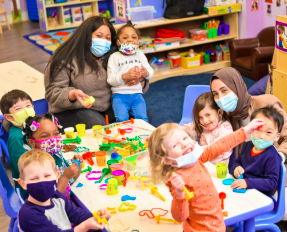Creating a well-managed group environment is essential for fostering collaboration, engagement, and a sense of community in any educational or childcare setting. Whether you’re working with preschoolers, primary students, or mixed-age groups, using effective strategies helps build trust and encourages cooperation. Here are several approaches that support positive group management.
1. Set Clear Expectations Early
Children thrive in environments where expectations are consistent and easy to understand. Begin each day or activity by outlining what is expected—such as using kind words, listening when others speak, and taking turns. Visual cues like charts or picture cards can be especially helpful for younger learners.
2. Foster a Sense of Belonging
Help each child feel valued by encouraging participation and recognizing their efforts. Use group names, songs, or rituals that create a sense of identity. When children feel connected to their peers, they are more likely to contribute positively to the group dynamic.
3. Use Positive Reinforcement
Celebrate positive behavior with verbal praise, stickers, or classroom acknowledgments. Highlighting cooperative actions—like sharing, helping, or waiting patiently—reinforces desired behavior in a gentle and encouraging way.
4. Implement Predictable Routines
Routines provide structure and reduce anxiety. Transitioning between activities is easier when children know what to expect. Using visual schedules or transition songs can ease movement from one part of the day to the next, promoting calm and order.
5. Promote Teamwork and Shared Goals
Offer activities that require teamwork, such as group art projects, collaborative games, or problem-solving tasks. Assigning rotating roles within the group can give each child a chance to lead, follow, and cooperate in a supportive environment.
6. Model Respectful Communication
Children learn a lot by watching adults. Use respectful language, active listening, and calm redirection when conflicts arise. Teaching children to express their feelings using words and to resolve disagreements respectfully lays a foundation for strong social skills.
7. Reflect and Adjust as Needed
Every group is unique. Take time to observe the group dynamic and consider what’s working well and what may need adjustment. Regular reflection helps educators fine-tune their approach to best meet the needs of the children.
Conclusion
Effective group management doesn’t rely on control—it grows from relationships, communication, and structure. By building a community where each child feels seen and supported, educators can cultivate a cooperative and joyful learning environment.


